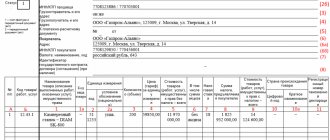When a loved one ends up in a pre-trial detention center (hereinafter referred to as a pre-trial detention center), his existence without the additional support of relatives and other caring people who are able to provide necessary things and products in everyday life will be difficult. Formally, prisoners in pre-trial detention centers are provided with everything they need, but in fact, people have to survive by eating low-quality food and experiencing a shortage of necessary items.
When planning to formulate a transfer for a prisoner in a pre-trial detention center, you should know the rules of this procedure, because otherwise you can make mistakes that can negate all your efforts.
How to correctly draw up an application for the transfer of food to a pre-trial detention center?
When preparing a package for a prisoner in a pre-trial detention center, you must strictly follow the rules, otherwise, if you make mistakes, you risk leaving the recipient without a package. This includes the need to correctly complete the transfer application.
The application must indicate:
- the sender's surname, first name and patronymic;
- Contact details:
- residential address and telephone number;
- indicate the degree of relationship or the nature of the relationship with the arrested person.
Indicate the name of the pre-trial detention center, rank and name of the director to whom the application is being submitted. Next, a request is formulated to accept the transfer in the name of the convicted person, without abbreviations: last name, first name and patronymic, and in some cases year of birth (depending on the form).
Data must be entered legibly and accurately. After completing the “header”, a complete inventory of the transferred products must be filled out. Please note that only names should be indicated, and the weight and quantity will be entered by the receiver after weighing and recalculation. At the end, a signature is placed with a transcript and the date of application.
An example statement would look like this:
To the head of PKU SIZO-1 of the Federal Penitentiary Service of Russia for the Tambov region, Lieutenant Colonel Ext. sl. Vinogradov A.S. From Ivanov Peter Semenovich Living in Tambov, st. Central, no. 46, apt. 98. Tel. 8 (900) 599-20-71 Passport data 68 12 394598 issued by the Federal Migration Service of Russia for the city of Tambov
STATEMENT
Please accept the transfer for my brother, accused/convicted/suspect Ivanov Fedor Semenovich, born in 1978.
Name of food products:
- Instant noodles.
- Smoked sausage.
- Cigarettes with filter.
I collected the program with my own hands.
Warned about liability for transferring prohibited products. Ivanov Petr Semenovich 10.10.18
After filling out an application with a list of products, it is submitted to the responsible employee of the pretrial detention center, who checks the compliance of the products with the requirements, enters the quantity and their weight. Next, the receiver confirms the fact of acceptance of the parcel with a signature. In order to be sure that the addressee will receive his parcel, you should draw up a statement in two copies, one of which is given to the prisoner.
Items permitted for transfer
Food products, which are a real luxury for prisoners in pre-trial detention centers, are partially limited in supply, and some are undesirable due to impracticality and limited shelf life. The standard set of products recommended for transferring to a pre-trial detention center includes:
- Vegetable oil, in an amount of 1 to 3 liters, is an excellent source of vegetable fats that can improve prison gruel.
- Instant noodles, which should be bought at the stall at the pre-trial detention center, in order to avoid gutting the packages and confiscating packets of spices, seasonings and oil (depending on the brand). The quantity varies individually, but is usually 20 – 30 bags.
- Cone bouillon cubes, total weight up to half a kilogram, according to preference: chicken, beef and pork. Mushroom and other exotic flavors are not popular.
- The tea should only be black and have a medium or fine-leaf consistency. The number of bags is usually taken to be two, the first one is larger and contains cheap Indian tea for the common fund, and the second one is smaller and of higher quality for the recipient.
- Cookies or gingerbread products in the amount of one to two kilograms.
- Salted lard can be cut into pieces, but can be stored well even at room temperature and is an excellent source of fat.
- Only smoked sausage is allowed, or even better, raw smoked sausage, in quantities of no more than two sticks.
- There is no point in sending canned meat or fish semi-finished products more than two cans, since they must be opened and transferred to plastic or polyethylene containers, which means they will spoil in a day or two.
- You should prefer candies like caramel, which you won’t eat much of and will last for a long period.
- Honey is very useful and attractive to prisoners, but it must be transparent and contained in a plastic container.
- You should choose melted butter, such as lard, or even preferably chicken fat.
- Cereals will be accepted only if they can be prepared by simple steaming, and the need for even short-term cooking will exclude the product from the list of permitted ones.
- Mashed potatoes should also be prepared using boiling water and it is advisable to choose a product with various flavoring additives.
- Vegetables can only be supplied fresh, and onions and garlic are most in demand.
- Of the fruits, apples are the most popular, but dried fruits, which weigh significantly less, should be preferred.
- There are never too many cigarettes in a pre-trial detention center, even for those prisoners who do not smoke themselves, since they are an internal “currency” that allows them to solve many problems. You should buy tobacco products at the kiosk at the pre-trial detention center, since otherwise they will be opened and broken in order to identify contraband.
- To prepare various drinks, you can transfer milk powder, tomato paste and citric acid, preferring soft plastic or polyethylene packaging.
- Condensed milk is very attractive to prisoners, but it should not be boiled or easily poured, as this will be required during inspection.
- Other products, including cheeses and bakery products.
Medicines can be transferred to a pre-trial detention center only if prescribed by the detention center’s own medical worker; all other arguments are useless.
The list of clothing and household items allowed for transfer to a pre-trial detention center is quite extensive and is most fully reflected in the Order of the Ministry of Justice of the Russian Federation dated December 3, 2015 No. 277. The most popular set of things includes:
- underpants, up to 5 pieces monthly, to be changed once a week;
- socks, up to 10 pairs every month;
- laundry soap in the amount of 2 - 3 pieces;
- one tube of toothpaste and brush once a month;
- jacket, boots, thermal underwear, warm socks, tracksuit;
- electric shavers and water boilers.
A specialist will tell you about what it costs and how to transfer it to prisoners in a pre-trial detention center in the video below:
How to make an application for the transfer of things
An application for a clothing parcel is not fundamentally different from an application for a food parcel. The same information must be provided.
In an example it looks like this.
To the head of PKU SIZO-1 of the Federal Penitentiary Service of Russia for the Tambov region, Lieutenant Colonel Ext. sl. Vinogradov A.S. From Ivanov Peter Semenovich Living in Tambov, st. Central, no. 46, apt. 98. Tel. 8 (900) 599-20-71 Passport data 68 12 394598 issued by the Federal Migration Service of Russia for the city of Tambov
STATEMENT
Please accept the transfer for my brother, accused/convicted/suspect Ivanov Fedor Semenovich, born in 1978.
Name of items:
- Winter coat, used.
- Woolen sweater, new.
- Knitted, woolen socks.
I collected the program with my own hands. Warned about liability for transferring prohibited products.
Ivanov Petr Semenovich 10.10.18
Transfer rules
Not all food and items can be given to a prisoner in a pre-trial detention center. Before registering a parcel, you should familiarize yourself in detail with the list of products and things permitted for transfer:
- bread and bakery products;
- lard, smoked sausage;
- hard and sausage cheese;
- tea, coffee, cocoa;
- sugar, sweets, chocolate;
- confectionery products with a long shelf life:
- crackers;
- drying;
- cookie.
- fresh fruits, dried fruits (except raisins) without seeds, vegetables that do not require cooking;
- Concentrated instant food products:
- noodles;
- puree;
- bouillon cubes;
- muesli;
- vegetable oil.
- soft drinks.
The total weight of one parcel should not exceed twenty kilograms. The weight of food parcels per month should not exceed thirty kilograms.
But there are exceptions here too:
- the weight of packages per month is not limited for minors;
- patients suffering from serious illnesses (with a medical report from a pre-trial detention center doctor);
- pregnant women;
- women with children under three years of age.
What is allowed to be transferred from products?
Restrictions on the lists of food products suitable for donation are not the whim of the detention center staff. On the contrary, these are safety measures, as well as the prevention of various food poisoning. Thus, products with a long shelf life can be accepted into the pre-trial detention center.
The standard set is:
- instant noodles;
- bouillon cubes;
- small-leaf black tea;
- cookies or gingerbread;
- raw smoked or smoked sausage;
- canned meat or fish;
- caramels and honey;
- butter;
- mashed potatoes or instant porridge;
- vegetables fruits;
- bread.
Even approved products are subject to careful testing, namely:
- bakery products are cut into pieces;
- liquid products are poured into replacement containers;
- canned food is opened and transferred to another container;
- fish, cheeses, lard, sausages and meat products are cut into pieces;
- bulk products are poured;
- packs of cigarettes and cigarettes are opened and broken;
- sweets are accepted without wrappers, cut into pieces, all other products that can be used to hide notes and other prohibited items in them are checked in the same way.
Read more about what products can be transferred to a pre-trial detention center in our article.
What things can you do?
In addition to food, you can give the prisoner some things necessary in local life. When collecting a clothing parcel, you should also start from the list of permitted items:
- matches;
- clothes without waist belts, suspenders and ties;
- headdress;
- shoes for the season (without arch supports, metal heels);
- tracksuit in one set;
- no more than four sets of underwear;
- socks, gloves or mittens;
- indoor or sports slippers;
- toiletries;
- pocket mirror;
- electric or mechanical razor;
- disposable safety razors;
- duffel bag or bag;
- glasses and plastic cases for glasses;
- crutches;
- wooden canes;
- dentures (with doctor's permission);
- electric boiler;
- washcloth or sponge;
- ballpoint pen;
- a simple pencil;
- writing paper;
- student notebooks;
- postal envelopes, postcards, postage stamps;
- toilet paper from the pre-trial detention center stall.
As for cigarettes, even if the prisoner does not smoke, it is better to hand over more of them, since this is the hardest currency in these places. Can help get rid of many problems. It is better to buy cigarettes at a special kiosk on the territory of the pre-trial detention center, otherwise the pack will be opened and the cigarettes will be broken in search of contraband.
You should not send medicines that have not been prescribed by a pre-trial detention center doctor in a food or clothing parcel; they won’t be given anyway; persuasion and arguments are pointless. It is also possible to donate books and religious items, photographs, and board games.
What is strictly prohibited?
There is a list of items and products prohibited from being transferred to a pre-trial detention center ; it is also better to carefully read it before you prepare the transfer:
- products that require heat treatment (except steaming);
- meat, fish or vegetables in vacuum packaging;
- perishable food;
- drugs and other psychotropic substances;
- products from which alcohol can be made (yeast, sugar in large quantities);
- weapons and things that can replace them;
- precious things;
- watch;
- cards;
- photo and video equipment;
- telephone;
- pornographic materials;
- uniform (including military);
- multi-colored pens or pencils;
- perfumery.
Rules for accepting transfers to a pre-trial detention center
To transfer the parcel, you will need to fill out an application of the established form, which is located in the pre-trial detention center, and go through the procedure for checking the contents of the parcel, which includes opening the standard packaging and moving it into transparent plastic containers, including bags or containers. The opening and detailed examination of the contents of the parcel is not a whim of the pre-trial detention center staff, but is due to an urgent need in order to prevent the flow of prohibited substances and drugs outside the perimeter.
You can get rid of the procedure for a thorough check by preparing for it in advance, and it is better to purchase some products and items at the prison kiosk, since in this case they will not be searched, due to the lack of need.









